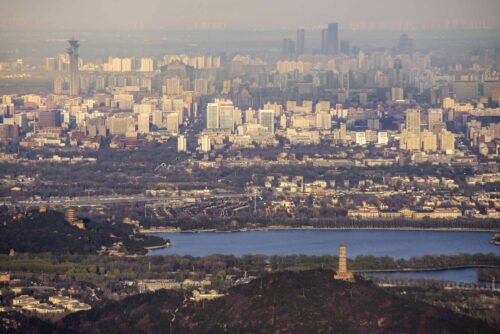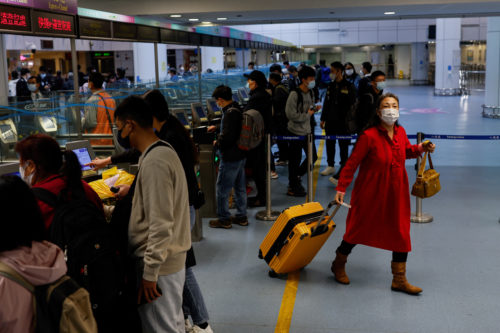Will Chengdu become a haven for foreign startups?
Challenges abound for Chengdu’s dream to draw in tech startups, but the city government is sparing no efforts to make it happen.
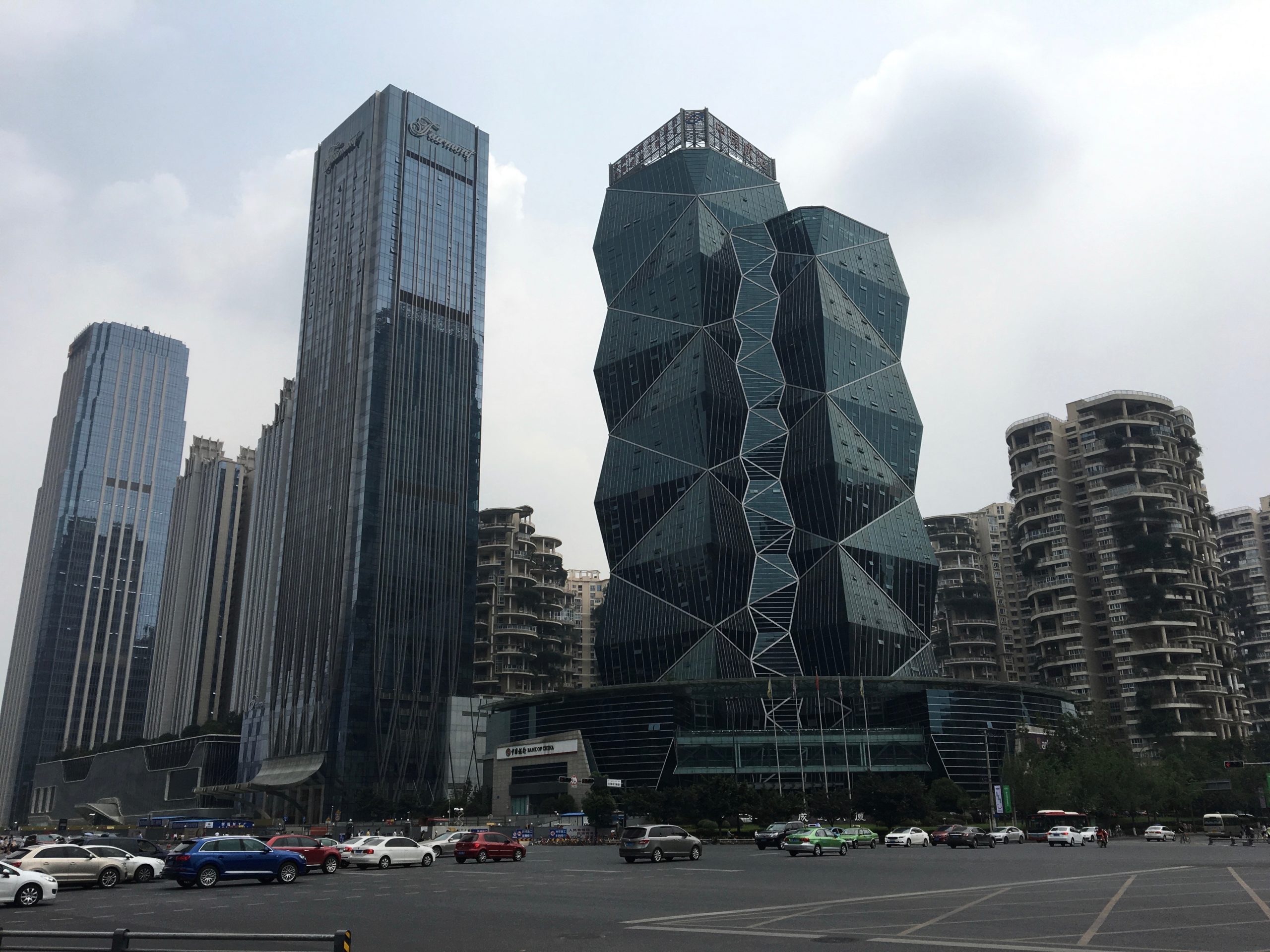
On a recent Friday night, in the heart of Chengdu’s shiny Tianfu New Zone, a lecture room in the Tencent Co-Working Space was packed with entrepreneurs, businesspeople, government employees, and students. The crowd — mostly Chinese with a handful of foreigners — had come to hear American entrepreneur Trevor Owens talk startup success. It didn’t matter that the talk was punctuated by pauses for Owens to be translated; the audience was rapt.

“We want Chengdu to go international,” says Roy Rao 饶译, co-organizer of Chengdu’s chapter of Startup Grind, an international organization that hosted the event. Rao, an entrepreneur himself, recently moved back to Chengdu after nine years in America, pulled back by the rise of startup culture in his home city. He believes that “having an international community will bring a different perspective to develop the startup scene.”
That startup exuberance is infecting Chengdu, a city of 15 million in southwestern China. Once known for its prolific production of iPads, Chengdu latched onto China’s growing emphasis on entrepreneurship to become a rising powerhouse in information technologies like health tech, video gaming, and virtual reality. Now the city’s development policies have a new focus: drawing foreign startups and entrepreneurs to join the city’s humming technology startup scene.

Chengdu is not alone on this front — across China, signs indicate that the country is warming to foreign startups and entrepreneurs, now viewing them as part of a larger category of desirable “overseas talents” skilled in technology, science, and innovation, akin to the United States’ O-1 visa, or the H-1B visa, which is under threat from the Trump administration. But for Chengdu, clambering to catch up to China’s top urban centers, the stakes for bringing foreign startups into the city are particularly high. This May, Chengdu was recategorized by a business magazine as a “tier one” city, joining Beijing, Shanghai, Shenzhen, and Guangzhou. Yet Chengdu, located in southwestern Sichuan Province, away from the seaboard, is noticeably less cosmopolitan than its tier-one peers.
“Chengdu is pretty ruthless in its mission to get these foreign talents here,” says Daisy Velven Peak, a co-founder of Laowai Here (老外 here), a company that now partners with the government to help foreigners move to Chengdu.
Incentives for tech and innovation startups (in Chinese) that move to Chengdu include up to 1 million yuan ($148,800) startup capital, special visa categories for innovation and entrepreneurship, plus up to three years of rent-free space in Chengdu’s Tianfu New Zone, a vast, special administrative area that includes Sichuan’s newly launched free trade zone (in Chinese).
But with the infrastructure built and the incentives in place, will the foreign entrepreneurs come?
It you build it, will they come?
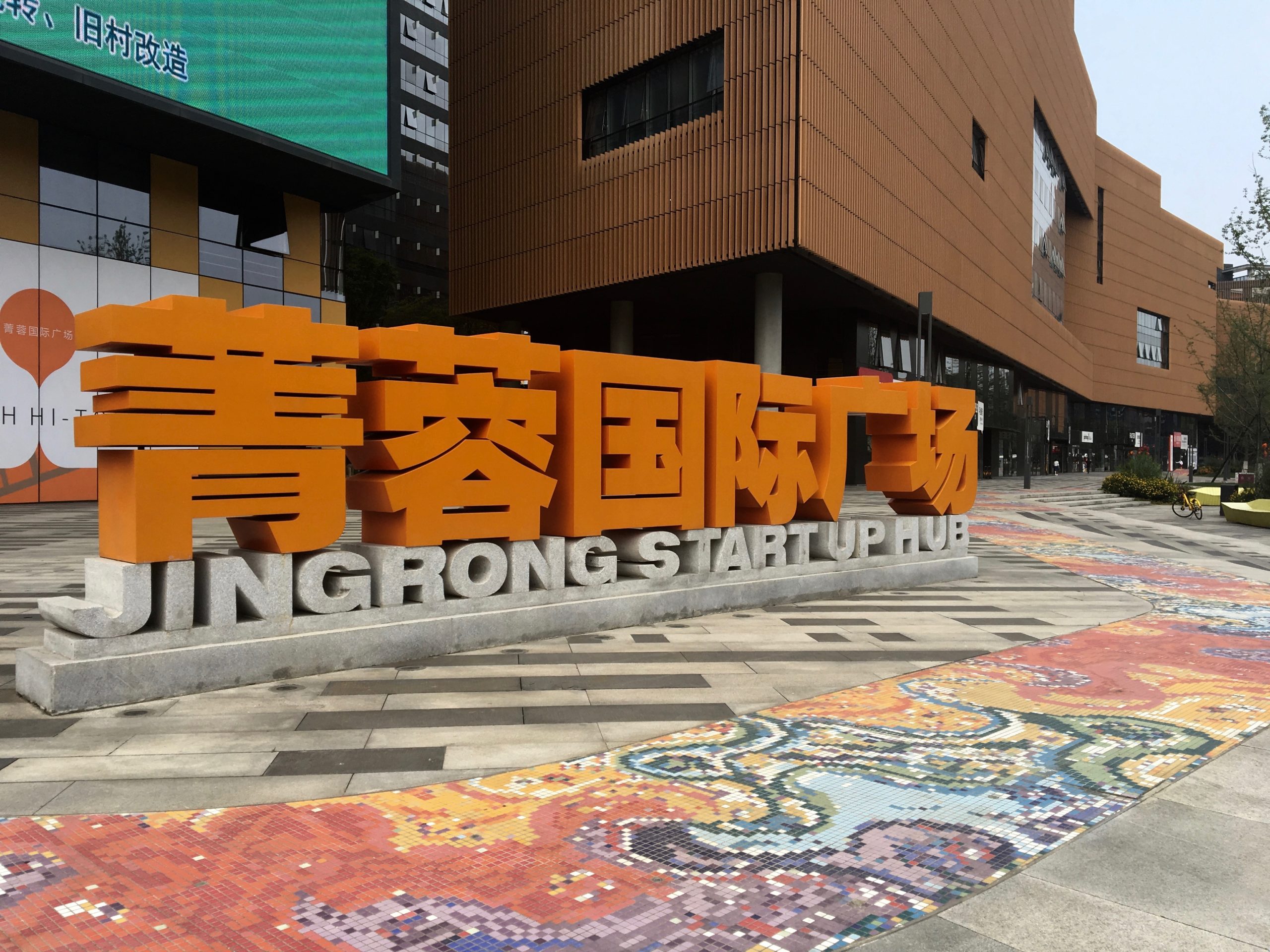
Jingrong Global Startup Hub in the Tianfu district was built with Chengdu’s international dream in mind. The complex has some of the trappings of a hip U.S. company campus — outdoor basketball courts, light posts adorned with posters quoting Steve Jobs and Einstein, architectural gymnastics like a fabricated grassy knoll rising up from ground level to cover the roof of the campus cafeteria (the bubble-shaped plastic mounds that dot the grass turn out to be cafeteria skylights). Several of the buildings have startup jargon printed over glass windows: “Business Accelerator” reads large in English, with the Korean and Chinese translations smaller below. “Co-Working Space,” says another.
A large office at the front of the Jingrong Global Startup Hub is dedicated to foreign entrepreneurs. Casually branded as a “Pitstop,” its 20 service windows offer “expat startup services,” from currency exchange to visa support, to help interpret Chengdu’s pro-startup policies. A glittering tile board has the letters IMAGINE spelled out in bright orange behind the info desk.
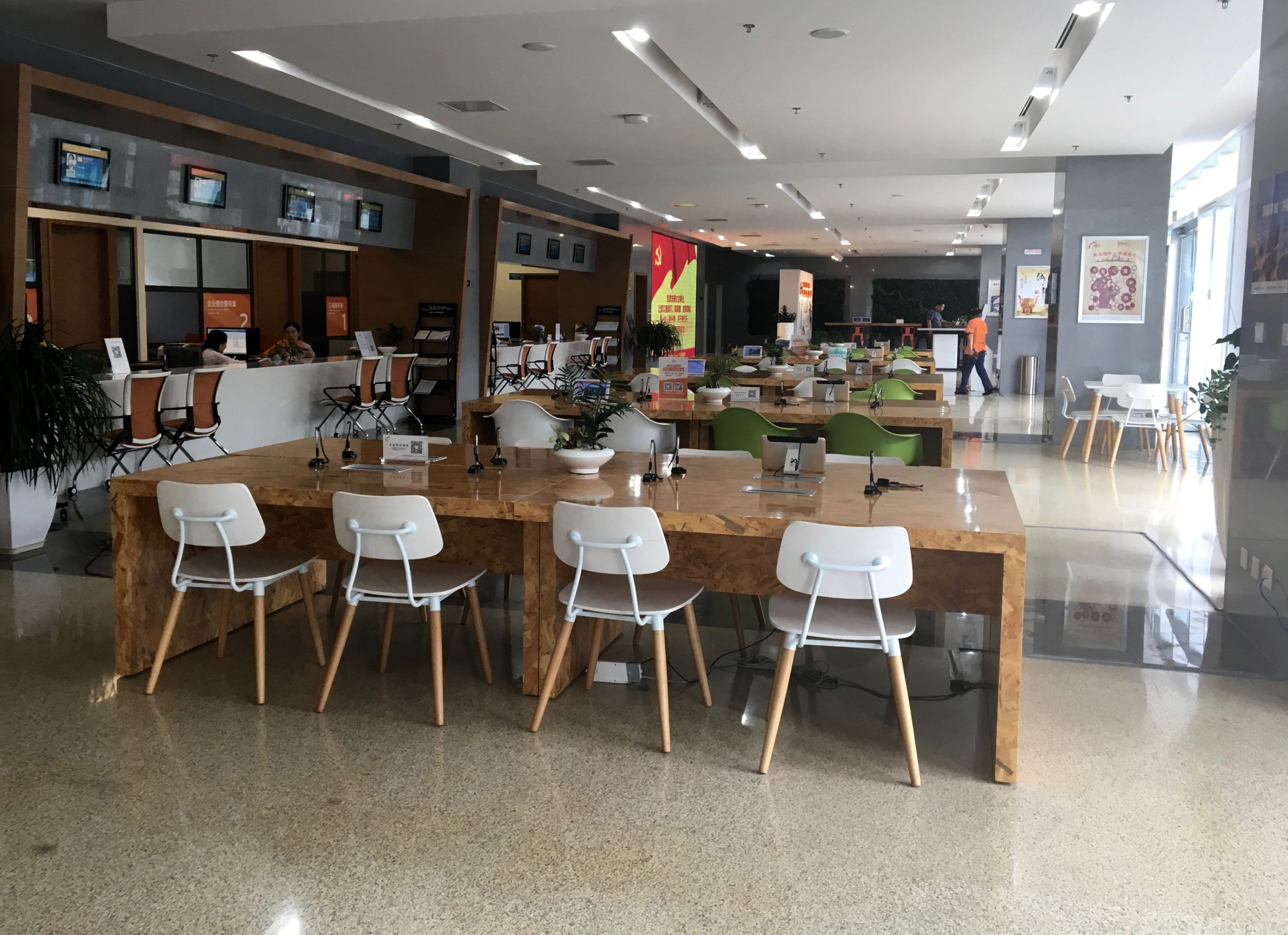

On a recent weekday afternoon, the place was well staffed but empty. The campus is home to three Korean startup incubators, but the empty “Pitstop” gave a distinct feel of being ready but still waiting for the crowds to show up.
Several blocks away at the 23-story “International Talent City” human resources building, there are plans for a permanent foreign staff to handle visas and help businesses, entrepreneurs, and other skilled professionals untangle which government policies they qualify for from the range on offer. The foreign-entrepreneur incentives are just one bracket among a larger list aimed not just at foreigners but also at the scientists and technologists in China, as well as at overseas Chinese. One category even offers 100 million yuan (roughly $14.6 million) distributed over five years for “extremely outstanding” projects run by Nobel Prize winners, certain high-level academics, or “core technological experts” from Fortune 500 or leading research and development companies.
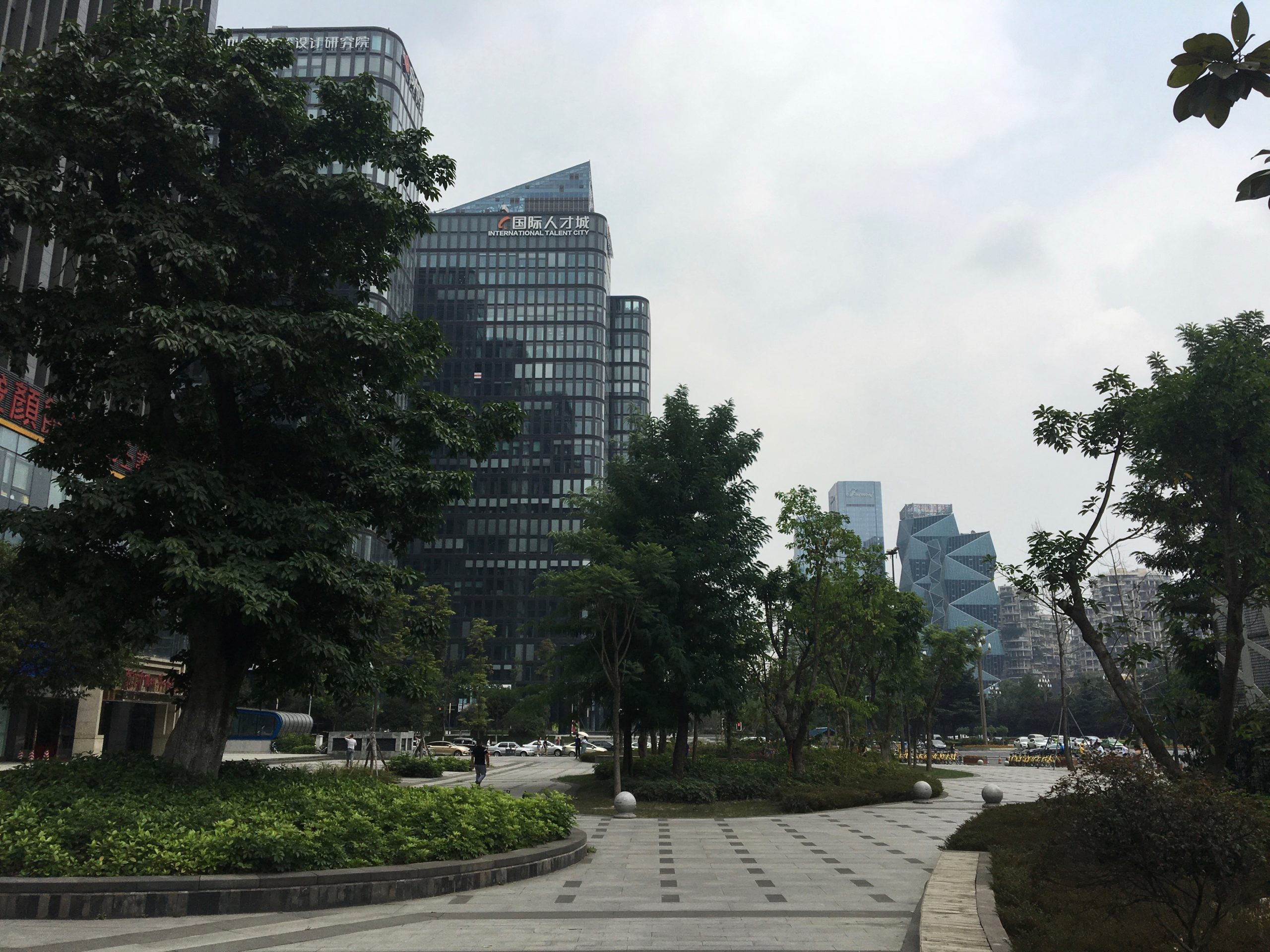
The goal of installing a multilingual foreign staff for the office is not just to attract entrepreneurs and other foreigners from the Western world, explains Daisy Velven Peak, the Laowei Here co-founder, who is involved with the recruitment of this team. As a key city on China’s One Belt One Road initiative, Chengdu is also looking to China’s geographic neighbors, and there is already a growing presence of Korean and Japanese businesses in Chengdu.
But advertising these perks to the rest of China and the world is not easy. “There is a gap between the government and expats,” says Peak’s colleague Angie Ren 任丽娟, Laowei Here co-founder and marketing manager, who grew up near Chengdu. “They really want to attract more people, the higher-skilled talents and also entrepreneurs from startups. And on the other side, for the expats, they also have a big need to get funding and to know what the funding policies are, but there is a gap in communication between them.”
Ren and Peak believe that Chengdu’s efforts will pay off — and are necessary if Chengdu wants to keep pace with China’s other major cities. But whether the policies pull foreigners away from other Chinese cities or from abroad to relocate in Chengdu, one challenge is to sell Chengdu, a lesser-known city than its eastern counterparts, with a relatively small expat population of around 30,000, as opposed to the 100,000 or more each in Beijing and Shanghai.
“A lot of people don’t even know what Chengdu is,” Peak says. “We tell them — pandas, good food, low living cost, One Belt One Road, incentives, and opportunity — if you work hard at something, you can move up fast here.”
And they are not the only ones putting this message in the public eye. Chinese media has played a part in trumpeting Chengdu’s international bent. China Watch, a paid English-language news supplement by state-run China Daily that appears in global publications like the Washington Post and Britain’s Telegraph, ran an article titled “International talent flocks to innovation-driven Chengdu,” focusing on the city’s benefits for returning overseas scholars. Another article, from this past May, leads by calling Chengdu a “byword in China and worldwide for entrepreneurship and technological innovation.” Xinhua News Agency, the central state-run news organization, has made a similar nod to Chengdu, one example being this video (in Chinese) released this spring. Titled “Chengdu, a place of dreams” (成都,一个圆梦的地方 chéngdū, yīgè yuánmèng de dìfāng), the video highlights the paths of young innovators, both locals and those foreign to Chengdu.
They want us to be here
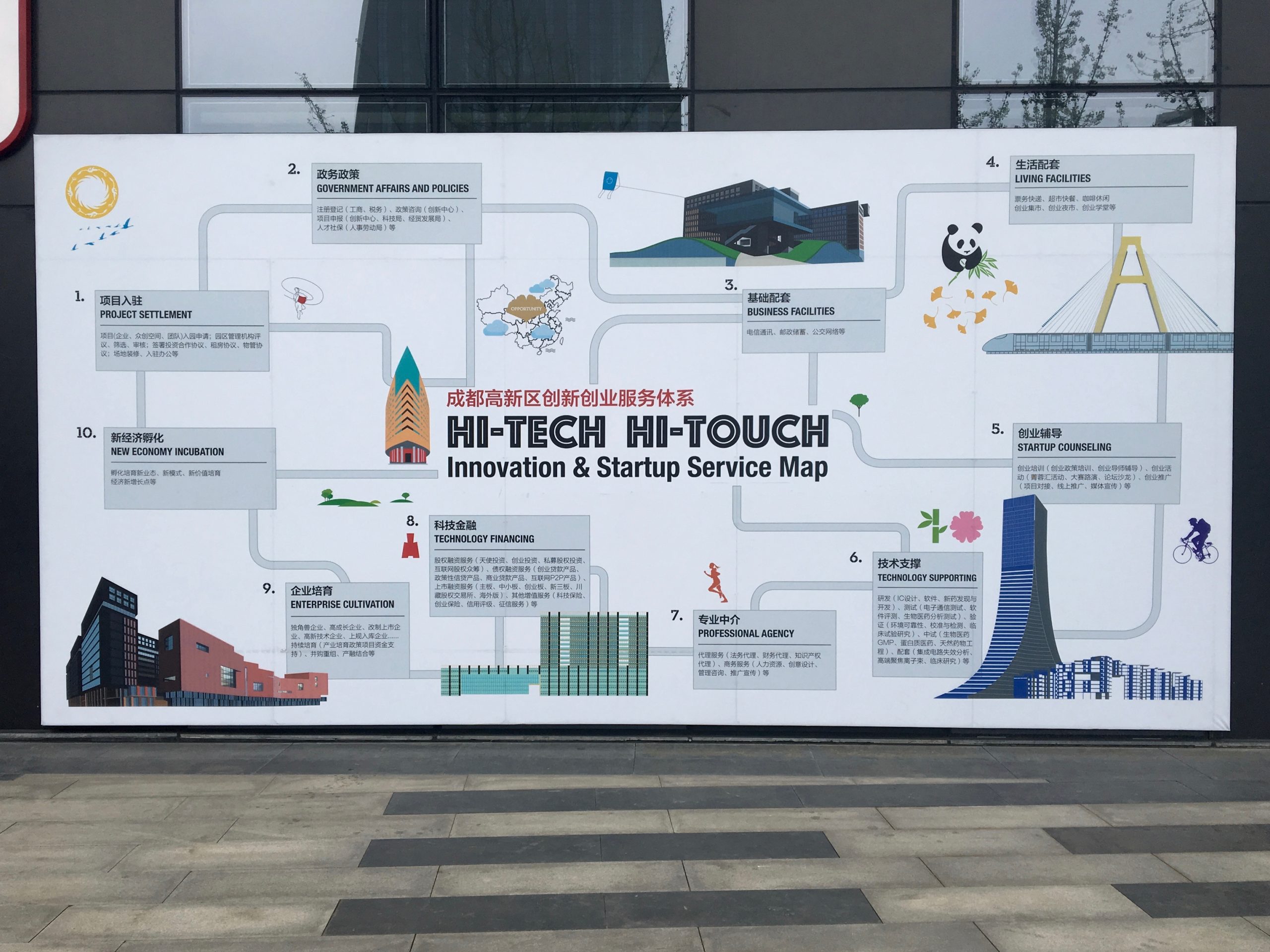
It’s not just hype. As a city with a legacy of small business and trade, Chengdu has flourished in the national emphasis on startup entrepreneurship that picked up speed around 2015 under the guidance of Premier Li Keqiang 李克强. Chengdu responded to Li’s call for “mass innovation”: the city currently has over 250 startup incubators, akin to co-working spaces, supporting budding local companies. When the city hosted the first of its annual Chengdu Global Innovation and Entrepreneurship Fairs in 2015, it was lauded by state broadcaster CCTV as China’s first event of this kind and part of the central government’s “drive to generate more economic and industrial innovation.” Chengdu has also drawn in multinational companies, like Siemens and IBM, and Chinese tech giants, like Tencent and Huawei.
This puts the city in a key position as China’s entrepreneurship bubble matures and moves from business model innovation to technological innovation, according to Chen Wang, China CEO of Slush, the international entrepreneurship community known for its global conferences, which hosted an event at this year’s Chengdu Global Innovation and Entrepreneurship Fair. For smaller Chinese hubs like Chengdu, important yet often sidelined by the marvels of megacities, Chen says that “if they have good technology and ideas, it’s the right time for them to rise.”
Cindy Feng 冯锦月, a Chongqing native who has lived in Chengdu for the past eight years, compares this entrepreneurial push with China’s landmark reform and opening-up policy in the early 1980s. “I feel that the central government strategy for innovation and entrepreneurship can make an equivalent impact on the way we live and work,” she says. Though she had built a career in the corporate world, last year Feng thought, “Why not do something working with startups and entrepreneurship?”
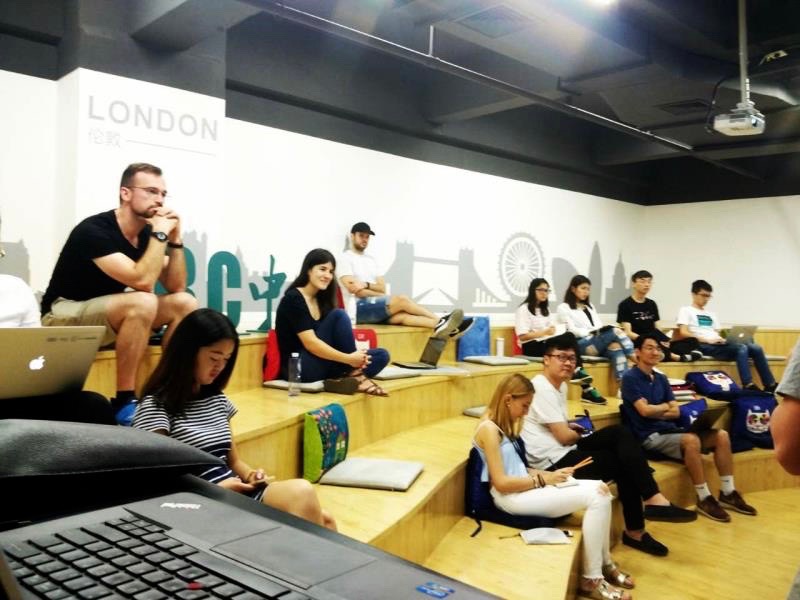
Now she finds herself in a role that seems to have anticipated the government’s next move — the push toward bringing an international startup scene to Chengdu. She is chief operating officer of Startupbootcamp, an international accelerator founded in Copenhagen. They started their first China program in Chengdu last month, bringing teams with digital health businesses from nine countries together in the Tianfu New Zone to grow their products.
Startupbootcamp is not the only independent, international startup accelerator to enter Chengdu this year. Founders Space, the Silicon Valley accelerator that has worked with tech unicorns like Etsy and Instagram, will be opening up a center in Chengdu later this year. CEO Steve Hoffman calls Chengdu one of China’s “most prominent success stories” for entrepreneurial growth. “Chengdu has the real potential to become a startup hub,” Hoffman says. “That’s why with our strategy, we prioritized Chengdu, it’s on the road map — we have to be in Chengdu.”
Hoffman, whose team has already opened Founders Space in Shanghai and will do the same in Beijing and Wuhan this year, is encouraged by China’s openness. He says he even met with Chengdu’s mayor Luo Qiang 罗强 and Sichuan’s governor Yin Li 尹力 on a recent visit. “It would be hard for us to come in if they didn’t want us here, but they do,” he adds.
But whether this openness to foreign entrepreneurship will translate into success for foreign startups or facile access to incentives remains to be seen. For the latter, Feng’s colleague, Startupbootcamp’s Asia-Pacific and China director Steven Tong says, “The incentives are good, but more important is the execution and disbursement of the incentives to the startups.”
China dreams and reality

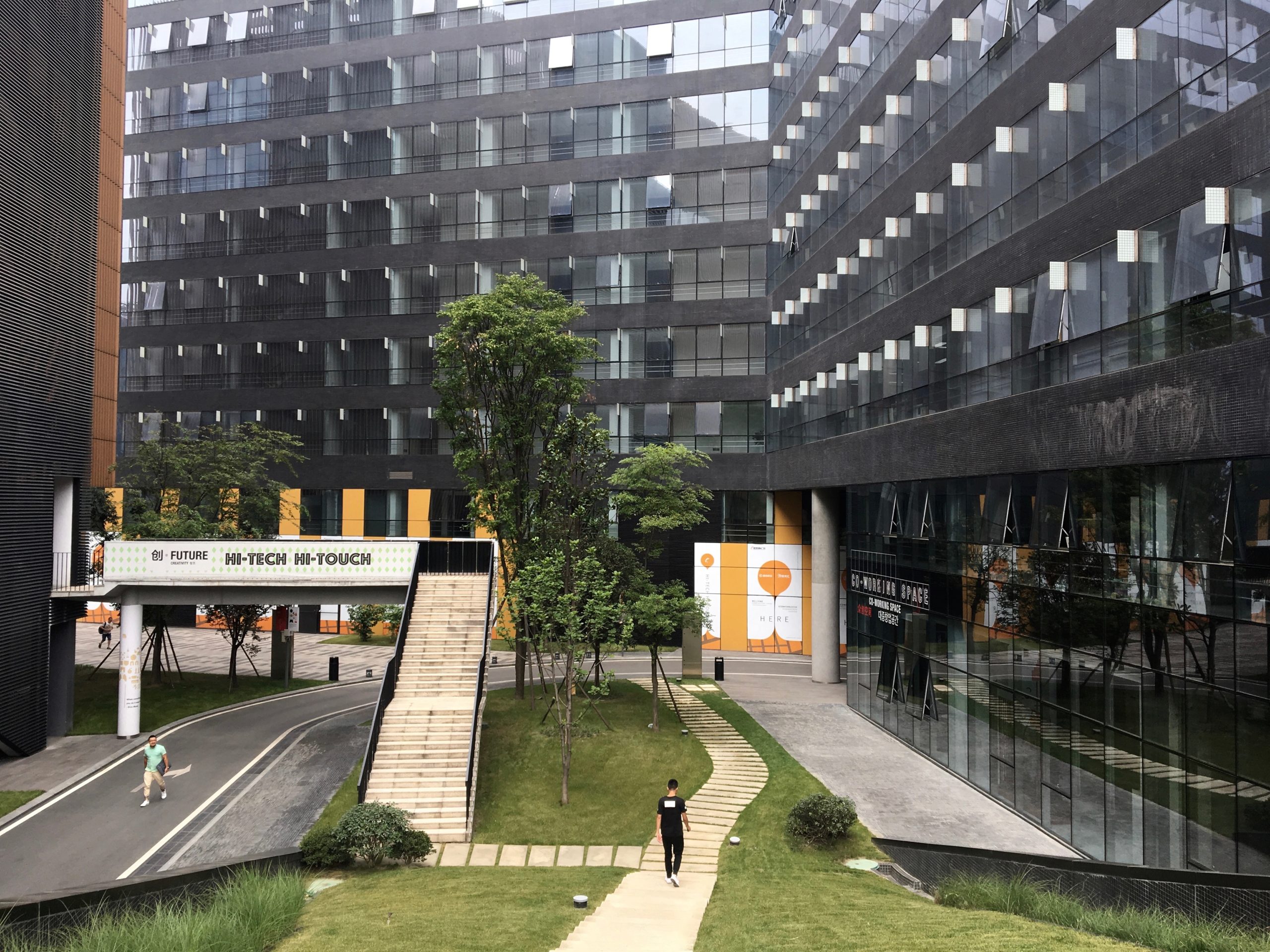
Incentives appear across China and include shifting visa regulations, discounted office spaces in China’s special high-tech zones, and the addition of categories for foreign startups in government-sponsored pitch competitions. However, the international startup community in China readily acknowledges the challenges for foreigners to be based here.
“The future is open, but there’s a lot of things that need to be done,” says Oscar Ramos, who is a partner at China’s long-running international accelerator Chinaccelerator, which has recently collaborated with the Beijing government on the Overseas Talent Entrepreneurship Competition (OTEC), one of a growing number of city-level pitch competitions that connects both local and foreign winners with government funds and support.
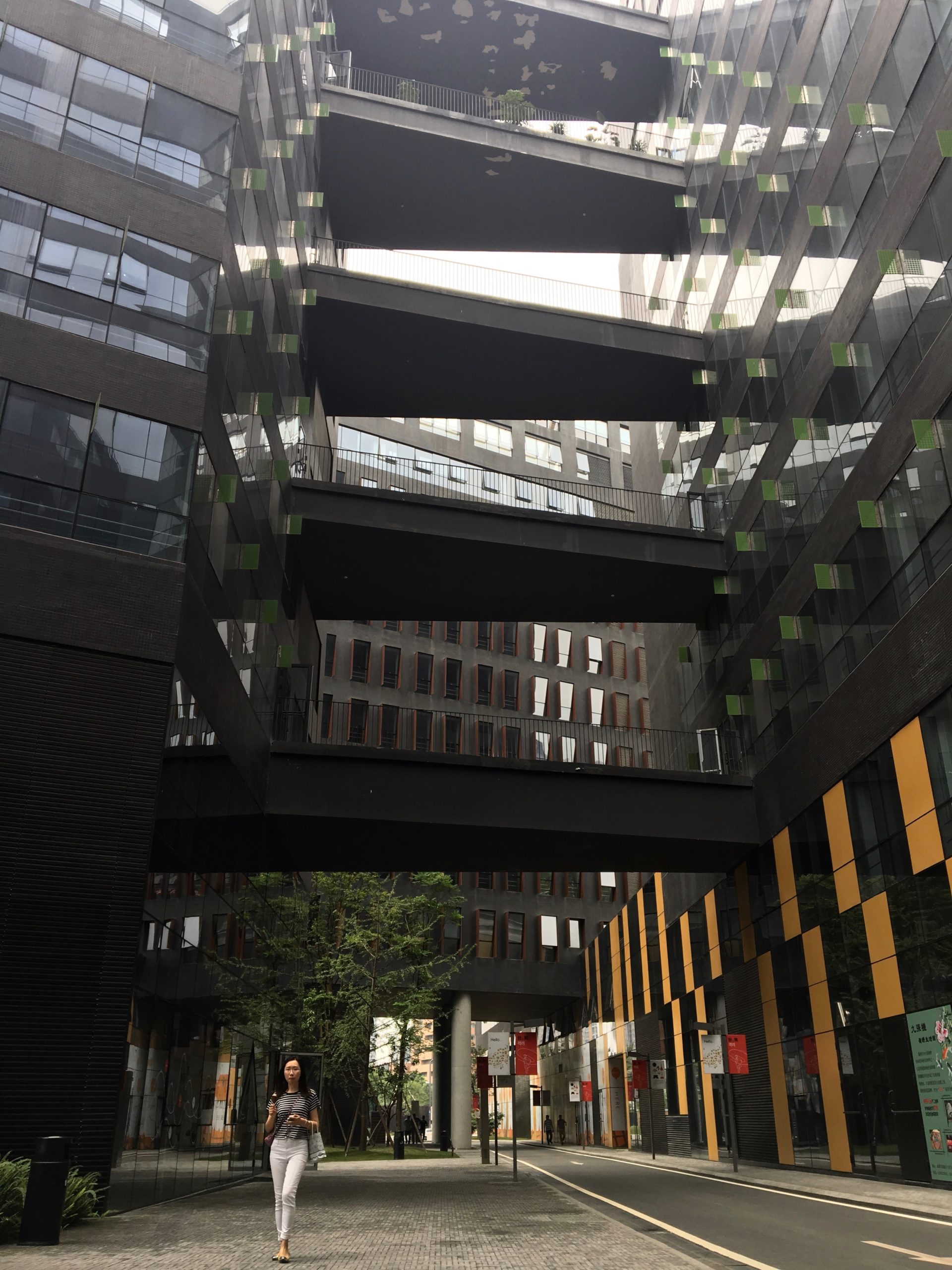
Even for foreign startups who do have a sustained advantage in the highly competitive Chinese market, Ramos notes the difficulty for foreign startups to receive funding from local investors. Some problems are administrative, like the time and effort it takes to set up such an investment arrangement with local and foreign players, he says. But the larger issue may be the limited track record of successful foreign entrepreneurship in China. “Chinese investors need proof of return,” he states.
And while visa restrictions have shifted to provide more opportunities for talented foreigners, they still fall along conventional lines that don’t always map onto entrepreneurial success, for example, requiring higher-education degrees. “If you are trying to start a company with rule breakers, you are going to find this very difficult,” he says. “It’s the same problem when you talk about why big companies can’t innovate — a lot of these entrepreneurs that create disruptions, they will never be hired to work in a company.”
Jan Smejkal, community director of Startup Grind for Asia-Pacific and China, wonders about the difficulties for foreigners working in China, who are often drawn by the challenge of the market, but could pull back when it’s too challenging. “China is supporting entrepreneurship, and it wants to attract foreign startups,” he said. “But at the same time, it’s very difficult still because the access to information is not there. It’s changing so fast — the regulations, all the relevant information — so if you are a foreigner who comes into China, it’s hard to figure it all out without support.
“It’s definitely getting better,” Smejkal adds, gesturing at the scene that was forming around him at the Friday night Startup Grind event at the Tencent building. “It’s getting easier because we have more of these events and similar international communities coming into China,” he says. “But there’s still a long way to go.”

